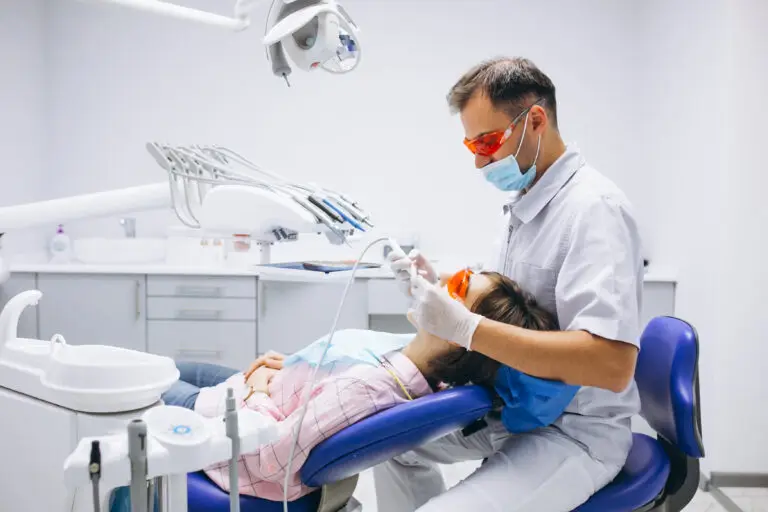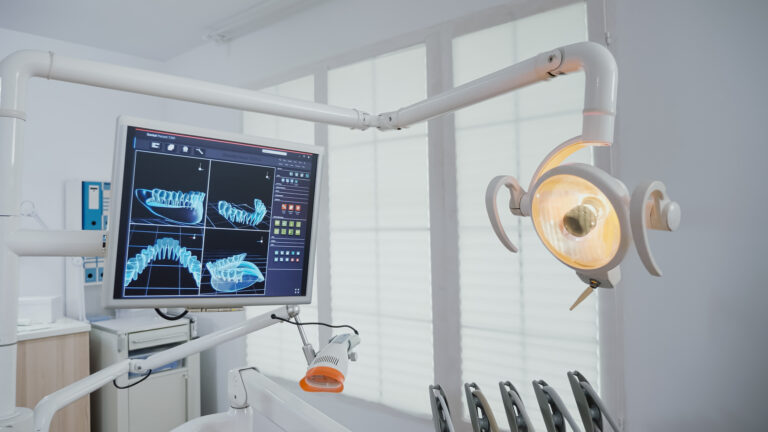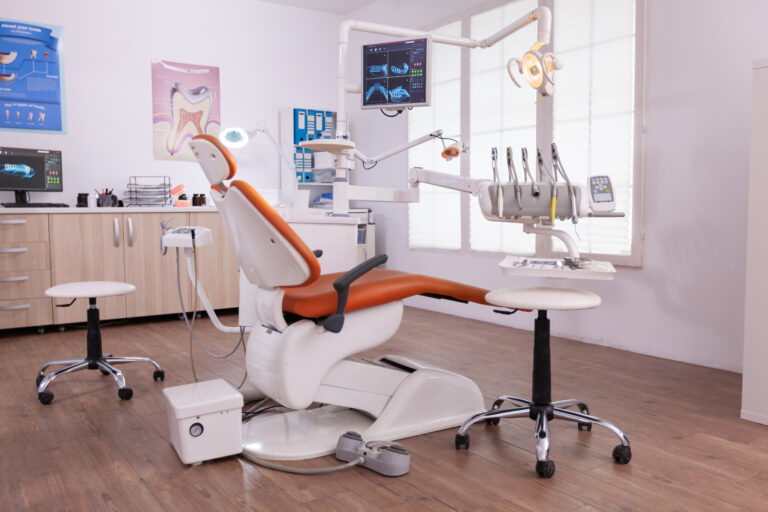Why a Smart Dental Materials List Matters for Every Clinic
Table of Contents
Introduction:
Starting a Dental Supply Business in Tier 2 cities of India is a smart move in 2025.
Why? Because demand is rising fast.
More dental clinics are opening in smaller cities.
And these clinics need regular supplies gloves, syringes, composite kits, dental chairs, and more.
Yet, many Tier 2 and Tier 3 towns still depend on outdated supply chains or metro dealers.
This opens a big opportunity for local suppliers.
If you can offer faster delivery, affordable pricing, and trusted brands, you can build a loyal customer base.
In this article, we’ll walk you through the full setup, how much money you need, where to buy stock, how to price it, and how to keep profits steady.
The focus is on Dental Supply Business strategies that work in smaller cities.
Let’s dive in and explore how to build a growing business that supports India’s expanding dental care network.
1. What are the basic requirements to start a dental supply business in a Tier 2 city in India?
To start a Dental Supply Business in a Tier 2 city in India, you don’t need a huge setup.
But you do need to get the basics right from day one.
Let’s go step by step.
1. Business Registration and GST
You need to register your business first.
You can choose proprietorship, partnership, or a private limited company.
Most importantly, apply for GST registration.
This is mandatory for trading goods like dental materials.
2. Drug License (If You Plan to Sell Certain Items)
Most dental supplies don’t require a drug license.
But if you want to sell anesthetics, prescription gels, or other restricted-use items, you may need a drug license under your state’s Drug Control Department.
Check with a local consultant to stay compliant.
3. Initial Inventory
Start small and smart. Focus on fast-moving dental items like:
- Disposable gloves and masks
- Suction tips and syringes
- Filling materials and composites
- Sterilization pouches
- Dental burs and mirrors
These are used daily by most clinics, so they sell fast. Plan an opening stock of ₹2–4 lakhs, depending on your budget.
4. Storage Space
You don’t need a fancy showroom.
A clean, ventilated 150–300 sq ft shop or warehouse is enough.
Focus on hygiene, proper shelving, and secure packaging to avoid material spoilage.
5. Build Local Connections
This part is crucial.
Talk to local dentists, clinic chains, and dental colleges.
Attend CME events, exhibitions, or small conferences. Build trust slowly.
In Tier 2 cities, word-of-mouth still plays a big role.
Start with just 10 loyal customers and scale up from there.
Once you get their repeat orders, your business can become self-sustaining.
2. Which dental products should new suppliers stock to meet high-volume clinic demand?
If you’re starting a Dental Supply Business in a Tier 2 city, your success will depend on stocking the right products.
You don’t need to stock everything at once. But you do need to focus on the fast-moving, high-demand items that most clinics use daily.
Here’s a simple list of what to keep in your first stock:
1. Gloves (Latex/Nitrile)
Every dental clinic uses gloves for every procedure. Stock different sizes — small, medium, and large. Go for boxes with 100 pieces. Price range: ₹250–₹400 per box.
2. Face Masks
Another daily-use item. Dentists often prefer 3-ply or N95 masks. These are easy to sell in bulk.
3. Syringes and Needles
Used in all types of procedures. Keep 2ml and 5ml sizes. Also, stock disposable needles are used for anesthesia.
4. Impression Materials
Dentists take impressions almost daily. Alginate powder and impression trays are must-haves. Brands like DPI, Zhermack, and Cavex are popular.
5. Composite Kits
Used for fillings and cosmetic work. Composite syringes in A1, A2, and A3 shades move fast. Start with popular kits like Ivoclar, Shofu, or GC.
6. Dental Burs
These tiny rotary tools wear out quickly and are always in demand. Keep a mix of round, taper, and diamond burs sold in sets or singles.
7. Sterilization Pouches
Used daily for infection control. Available in multiple sizes. Clinics that follow NABH hygiene standards will definitely buy these.
8. Disposable Items
Suction tips, cotton rolls, gauze pads, patient bibs, and apron sheets are also great sellers. They’re used in every single patient session.
Tip: Focus on products that get used in almost every patient visit.
That’s what keeps the demand going.
Once you know which items your buyers reorder the most, you can plan your next stock more confidently.
This way, your Dental Supply Business will stay lean, profitable, and relevant to your Tier 2 city market.
3. Where can dental supply businesses source materials at wholesale prices in India?
If you’re starting a Dental Supply Business, one of your biggest questions is – Where do I get quality materials at the best prices?
Good news: India has multiple options for sourcing dental supplies at wholesale rates.
Here’s how you can do it:
1. Wholesale Hubs in Metro Cities
Some traditional markets still offer unbeatable deals, especially if you buy in bulk:
- Delhi (Sadar Bazar): Known for surgical and dental supplies. Many traders here supply to smaller towns across North India.
- Mumbai (Bhuleshwar, Princess Street): Good for surgical consumables and basic dental tools.
- Chennai (Parrys Corner): A southern hub for medical and dental wholesale products.
You can physically visit or work with a regional agent who helps you place orders.
2. Online B2B Platforms for Dental Supplies
Many new-age B2B websites offer convenience, price transparency, and doorstep delivery.
- DentalKart: India’s leading online dental marketplace. Offers discounts for bulk buyers and new sellers.
- Unicorn Denmart: Known for large equipment like dental chairs, compressors, and imaging tools.
- Medikabazaar: Offers everything from gloves to autoclaves, great for full-line stocking.
- VasaDent & Dental Avenue: These are vendor-driven platforms focused on tier 2 and 3 markets.
These platforms also provide BNPL (Buy Now Pay Later) or EMI options, which are useful if you’re managing cash flow.
3. Local Distributors and Dealers
Every region usually has 1–2 master distributors.
You can tie up with them for a consistent supply of fast-moving items.
It’s also a good idea to negotiate dealer margins or exclusive territory rights in your district.
Final Tip:
Always compare prices online before buying offline.
And if you build trust with one or two wholesale partners, you can get early access to offers and better credit terms.
This is how your Dental Supply Business stays competitive and profitable from day one.
4. How much capital is needed to start a small dental supply business, and what are the fixed vs. recurring costs?
Starting a Dental Supply Business in a Tier 2 city doesn’t require huge capital.
But you still need a smart budget to manage setup and monthly operations smoothly.
Here’s how you can break it down:
Initial Setup Cost (₹3–6 lakhs)
These are one-time costs that help you get the business off the ground:
- Licensing & Registration: GST registration, business PAN, drug license (if dealing with specific chemicals or anesthetics) – ₹5,000 to ₹15,000.
- Furniture & Interiors: Basic shelving, counters, chairs, and office setup – ₹50,000 to ₹1 lakh.
- Computer, Printer & Billing Software: ₹30,000 to ₹50,000.
- Initial Stock of Dental Products: ₹2–4 lakhs, depending on how many SKUs you want to carry in the beginning.
- Basic Branding/Website (optional): ₹10,000–₹20,000 if you plan local online promotions or Google My Business listing.
Fixed Monthly Costs
These are recurring expenses that you’ll face every month:
- Warehouse or Shop Rent: ₹8,000–₹20,000 depending on city and size (100–300 sq. ft. is enough to start).
- One or Two Staff Salaries: ₹10,000–₹25,000 depending on experience.
- Internet, Electricity, Transport, Packaging: ₹5,000–₹10,000.
- Software/CRM Subscription (if any): ₹1,000–₹2,000.
Working Capital Needs (Monthly)
You’ll need a revolving fund to restock items, offer credit to clinics, or handle delayed payments:
- Monthly Replenishment Stock: ₹1–2 lakhs for fast-moving items like gloves, syringes, and disposables.
- Emergency Buffer: ₹50,000–₹1 lakh to manage urgent deliveries or bulk orders.
In Summary:
Expense Head | Estimated Amount (₹) |
Initial Setup | 3–6 lakhs |
Monthly Fixed Costs | 25,000–50,000 |
Monthly Working Capital | 1.5–3 lakhs |
You can also reduce upfront costs by starting from home or a shared warehouse and gradually expanding.
With smart planning, even ₹3–4 lakhs can be enough to launch a Dental Supply Business and grow from there.
5. What are the best marketing strategies to build a dental clinic customer base in Tier 2 markets?
To grow your dental supply business in a Tier 2 city, you need more than just good products.
You need smart and low-cost marketing strategies that build trust with dental clinic owners.
Here are some of the best ways to do it:
1. WhatsApp Catalogs Work Like Magic
Most dentists in small towns use WhatsApp for business. So, create a clear and clean product catalog.
- Use images and short descriptions.
- Group items into kits or categories like “Endo Tools” or “Disposables”.
- Share weekly stock updates and offers.
Keep it simple and consistent.
2. Appoint Local Dental Sales Reps
Hire or partner with field reps who already visit dentists.
They:
- Know the local market.
- Can deliver small orders quickly.
- Help collect payments and feedback.
Even one local rep with a two-wheeler can cover 30–50 clinics regularly.
3. Attend Trade Shows and Dental Conferences
Even in Tier 2 cities, dental colleges or associations organize local CMEs and product exhibitions. Join as a:
- Visitor (at least) to the network.
- Exhibitor (if budget permits) to display samples.
These events help you connect with active buyers and decision-makers.
4. Do In-Clinic Demos for New Products
Offer free demos of new tools or materials. Dentists love to see, touch, and test before buying.
- Use simple sample kits.
- Visit by appointment.
- Offer small first-order discounts.
It builds confidence, especially with newer or higher-cost items.
5. Build a Referral Network of Dentists
Happy clinic owners can become your best promoters.
- Offer a small bonus or discount on every new clinic they refer.
- Build a strong relationship with key dentists in the area.
- Keep service reliable and pricing transparent.
Good word-of-mouth spreads fast in smaller cities.
In short, mix personal relationships with digital tools like WhatsApp. Stay visible, responsive, and helpful.
That’s how you grow a solid customer base for your dental supply business in Tier 2 India.
6. How profitable is a dental supply business, and what margins can you expect in 2025?
The dental supply business in Tier 2 cities can be profitable if managed well.
In 2025, many clinics are looking for reliable suppliers who offer good rates and consistent service.
So, if you plan smartly, you can make decent profits even with limited capital.

What Margins Can You Expect?
Here’s a simple view of the profit margin:
- Consumables (gloves, syringes, cotton rolls): 20–30% margin
- High-end materials (composites, impression kits): 15–25% margin
- Instruments (mirrors, scalers, forceps): 25–30% margin
- Bulk purchases or branded items: 10–15% margin
Your gross profit can range from 15% to 30%, depending on the products and the brands you stock.
How to Increase Your Profits
Let’s explore a few simple ways:
1. Offer Bulk Purchase Discounts
Encourage clinics to buy monthly stock instead of weekly.
You can give a small discount for bulk orders, which increases your overall volume and turnover.
2. Get Exclusive Dealer Rights
Try to tie up with a manufacturer or brand as an exclusive distributor for your region.
It helps avoid competition and lets you keep better margins.
3. Use Vendor Credit & Manage Cash Flow
Negotiate credit terms with your wholesalers (10–15 days).
Then, you can sell to clinics with upfront payment or short BNPL terms. This keeps your working capital free and increases cash flow.
4. Introduce EMI or BNPL Options
Offer EMI or buy-now-pay-later (BNPL) plans for costly items.
Many small clinics appreciate this flexibility.
You can partner with NBFCs or fintech apps to make this possible.
Final Tip
Keep your operations lean, avoid overstocking, manage expiry dates, and always compare vendor prices.
The more efficiently you run the business, the more you take home in profit.
So yes, the dental supply business can be profitable in 2025.
Especially in Tier 2 cities, where demand is growing and competition is still manageable.
Conclusion
Starting a dental supply business in a Tier 2 city is a smart and scalable opportunity for 2025.
With rising demand from local clinics and diagnostic labs, the market is wide open for reliable, budget-conscious suppliers.
Focus on stocking essential dental materials, build strong local relationships, and use simple tools like WhatsApp catalogs to drive sales.
Also, manage your costs smartly, lease storage, source from wholesale hubs, and offer flexible credit terms to clinics.
If done right, this business offers steady income, good margins, and long-term growth potential, even with an initial investment of ₹3–6 lakhs.
FAQs
- How much capital is needed to start a dental supply business?
You can start with ₹3–6 lakhs for inventory, rent, and basic setup in a Tier 2 city.
- What products should I stock as a beginner dental supplier?
Start with high-demand items like gloves, syringes, composites, impression material, and basic dental tools.
- Where can I buy dental materials at wholesale prices?
Use B2B platforms like DentalKart, Medikabazaar, and physical markets in Delhi, Mumbai, or Chennai.
- Is a drug license mandatory for dental supply businesses?
Not always. For basic consumables, a GST number is enough. For medicated products, a drug license may be required.
- How profitable is a dental supply business in 2025?
You can earn 15–30% gross margins. Profitability increases with bulk orders, exclusive dealer rights, and BNPL offerings to clinics.
The Following Video Might be Helpful for You
Also Read,
- The Ultimate Guide: Working Capital Loans for Small Business (MSMEs) in 2025
Understanding the Impact of Payment Terms on Working Capital for Clinics
How Poor Inventory Management Hurts Working Capital in Pharmacies.
Want a Better Business Credit Score? Small Pharmacies Can Now Use UPI & Cards to Build It
Want a Better Credit Score? Use Small Daily Payments to Build Your CBIL (For Clinics & Pharmacies)
Case Study:How a Small Clinic Improved Its Working Capital Management





